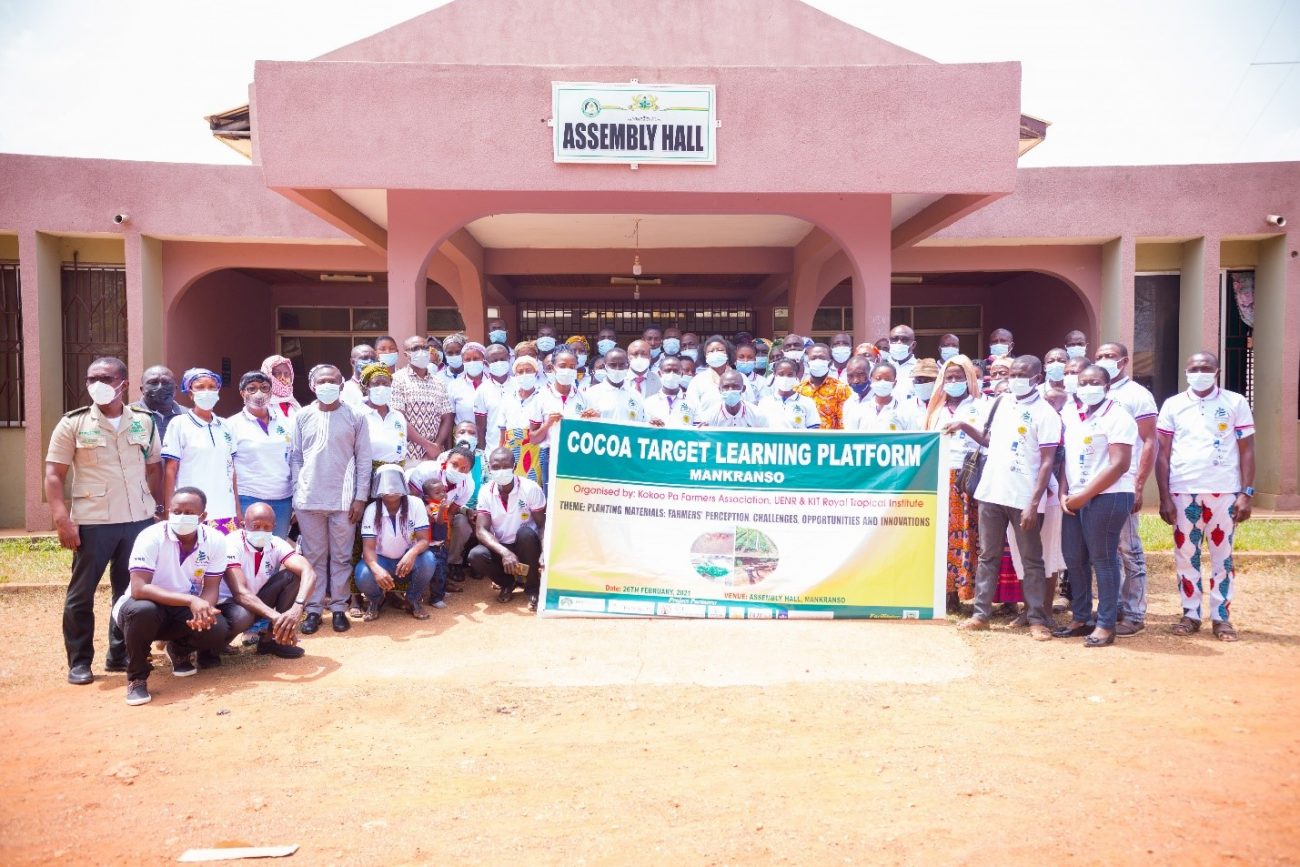The University of Energy and Natural and Resources (UENR) has facilitated a Learning Platform for stakeholders in cocoa farming in the Ahafo Ano South-West District of the Ashanti Region. The programme was held at Mankranso in partnership with World Cocoa Foundation, Kokoo Pa, Government of Netherlands and KIT Royal Tropical Institute under the theme “Planting Materials: Farmers’ perception, challenges, opportunities and innovation”.
The platform provided Cocoa Farmers and Institutions the opportunity to learn and exchange innovative ideas on planting materials and the best farming practices to improve cocoa production in the country.

The Vice-Chancellor of UENR, Prof. Elvis Asare-Bediako who graced the occasion, in addressing the participants as a plant virologist, acknowledged the importance of growing cocoa in Ghana. He noted that statistics indicates that cocoa contributes largely to the GDP of the economy as well as employment rate adding that, the training programme was necessary to educate farmers about cocoa seedlings and how to increase crop yield in farming. Prof. Asare-Bediako entreated the farmers to be cautious of the seedlings used in farming. “It is not just about planting seed but using the right and healthy seedlings that will improve crop yield” he stated.
Prof. Asare-Bediako advised the farmers to seek help from the necessary institutions and further admonished that Institutions are available to collaborate with farmers in conducting research to find innovative ways of farming in the country.

One of the project partners, Alliance of Bioversity and CIAT represented by Dr. Jacob Ulzen explained in a presentation that the main objective of the Cocoa Target Project Learning Platform is to use Citizen |Science to improve climatic and agro-ecological variety recommendations as well as accelerate the access of planting materials to cocoa farmers in Ghana. He added that over 800,000 Ghanaian smallholder farmers who depend on cocoa for income face the challenge of climate change. Dr. Ulzen was of the view that breeding of new varieties is an important adaptation strategy, adding that policy change on cocoa seed production in Ghana would facilitate the participation of the private sector in increasing crop yield.

A Research Scientist and breeder at the Cocoa Research Institute of Ghana (CRIG), Dr. Atta Ofori, said the Ghana Cocoa Board and CRIG have made investments in cocoa seed development and seedling nurseries. This he said will ensure the availability of quality planting materials for farmers stressing that hybrid seeds had a better survival rate than the open-pollinated seeds from farmlands.

The participated farming communities were Mmrobem, Aponoaponso and Nyamebekyere. Other institutions present were the district representatives from the Forestry Commission, Ministry of Food and Agriculture, Seed Production Commission, Cocoa Health Extension and the Ahafo Ano South-West District Assembly.

